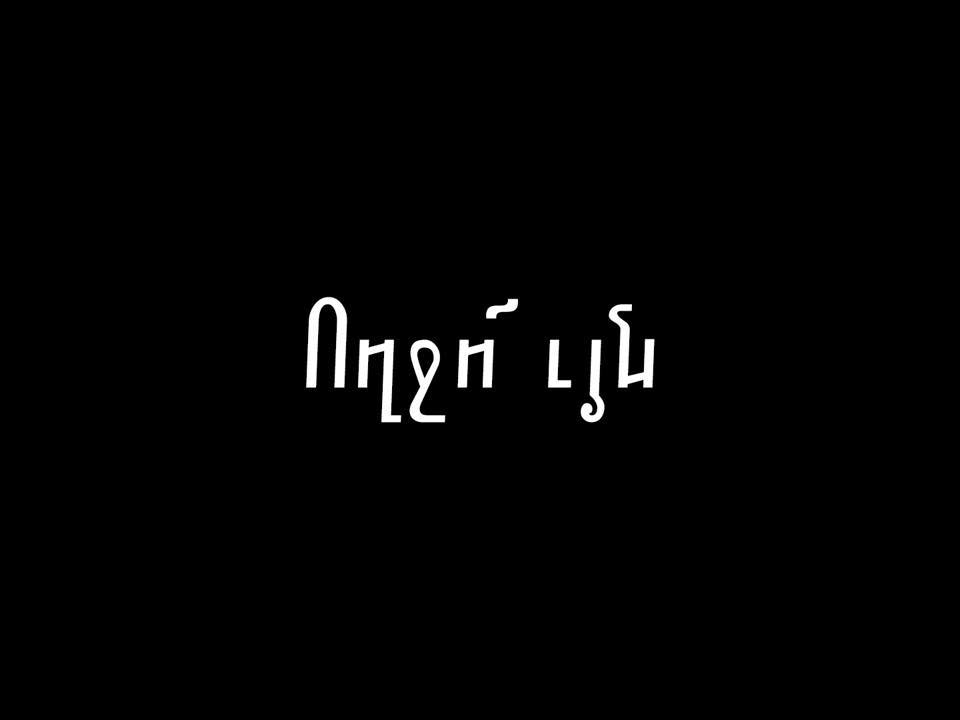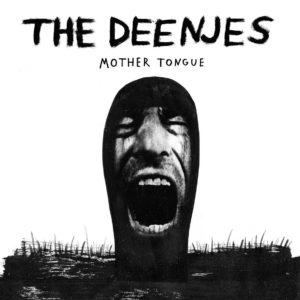The Deenjes and the Music of the New Armenia
September 4, 2018
In 2010 two friends, an Armenian film director and an Arab cameraman decided to record a song called “Togh u Gna” (which translates in English to “Leave! Go!”). They never imagined that just a few years later, they would become leaders in Armenia’s underground music.
Together, Mika Vatinyan and Tammam Hamza are known as The Deenjes. The two met for the first time in 2001, when Hamza had moved to Armenia from Syria to study at Yerevan State Institute of Theater and Cinematography, though they didn’t become friends until a couple years later, when Hamza helped Vatinyan with a photoshoot for his upcoming film debut “Joan and the Voices.” Afterwards, he returned to Syria, and when he came back in 2009 to help produce an animated short film for the Re-Animania festival, that is when their collaboration took off.

‘’I met Mika who was about to start shooting his film. For my surprise, he offered me to work on “Joan and The Voices” as an operator; this was the beginning of the journey that has lasted for more than two years. We used to talk music all the time. We both have had our share of creating and recording projects that have never been fully realized,’’ recalls Hamza.
One day, during the long period of editing his film, Vatinyan played a tune and asked Hamsa: “Do you wanna try recording this?” A couple of weeks later, “Togh u gna” came to life.’
‘’My childhood dream came true. I always wanted to play, have a band…” says Vatinyan. “As a child, you listened to rock music and dream that someday, your life will also be like а rock and roll. So [in the beginning] we had no plans for a band. Everything changed when we started to realize that people really like our music.”
Today, the Deenjes are well known in Armenia and enjoy a young fan base thanks to their uniquely melancholy, patriotic, synth-pop music and an extraordinary style full of melting glasses and mystery.

Everything about this band is unique and witty. Let’s unpack, for example, its peculiar name. “The Deenjes” comes from the Armenian dialectal word “dinge,” which literally means calm, quiet and slow. Vatinyan and Hamza say it describes their psychological qualities and the overall way they ebb and flow. “We are moving forward, as water, calmly and quietly,” says Mika.
The Deenjes do not subscribe to a certain genre with their unique mix of electronic, synth-pop, and trip-hop. The guys proudly joke that their genre adds an erotic twist to their patriotic music, creating a genre all on its own.
A signature feature of their music is its lyrics, which are often borrowed from some of the most respected Armenian literary greats: Yeghishe Charents, Vahan Teryan, Paruyr Sevak, and Hamo Sahyan. Their music has, in a way, revived these works, giving young fans an opportunity to appreciate these historically compelling messages in a more modern context.
‘’My knowledge of the Armenian language is, obviously, pretty poor. I always need to ask for a translation when Mika brings in a poem,” said Hamza. “But I don’t think about it much. I know the language enough to enjoy the sound of it and how it ‘rings’ in excellent poetry like Charents’ or Teryan’s. The translation, for me, becomes secondary in the making of the songs. But let’s say I have improved in Armenian over time; now it’s much easier and more enjoyable to hear a new poem.’’
Tamam is responsible for a musical arrangement, while Mika’s responsibilities include lyrics choosing and writing. Nevertheless, they discuss and harmonize on all the details during the creation of music.

The band has also been adapting well to today’s on-demand music streaming—one of the reasons why they’ve never released an album. And the only album “Mother Tongue,’ a kind of ‘ongoing album’ which they are consistently updating with new songs, is freely available to listen and download on the internet. They say it’s a matter of principle that their songs are widely accessible.
“I feel happy when I see that people make clips based on our music or using our music during the demonstrations or somewhere else,” said Vatinyan. “When people ask us if they can use our music, we never say no.’’
Vatinyan actually wrote some of the lyrics including; “Utem Qez” (“I’ll Eat You”); “Togh u Gna” (which translates to “Leave! Go!,” but this the English language title is, “Why Do You Not Speak Armenian?”); “Yerevan’s Nights,” and “Mi Tesak” (“Somehow”).
“I feel happy when I see that people make clips based on our music or using our music during the demonstrations or somewhere else,” said Vatinyan. “When people ask us if they can use our music, we never say no.’’
‘’Charents and Teryan inspired me to write,” Vatinyan recalls. “‘Somehow’ (Մի տեսակ) and ‘Yerevan’s Nights’ are very important works for me. These songs are about my concerns and feelings which I had in that time living in Yerevan. After the revolution, those feelings have changed. The sense of claustrophobia which people feel towards their country because everything was unchangeable and unbearable has vanished. The revolution brought the air. Before the revolution, you lived and thought that nothing would change, but then it changes immediately and you realize that there may be changes.’’ says Mika.
The group’s Armenian fanbase has offered mixed reviews on the song based on Yeghishe Charents’ famous poem ‘’I Love My Sweet Armenia’s”…’ (Ես իմ անուշ Հայաստանի)’ recited by famous Armenian actor, Khoren Abrahamyan.
‘’People were tired of the pseudo-patriotic excuses of the government, and in that background, they perceived this song as some kind of ‘Hooray, patriotic!’ work. They did not get the dialogue with Charents which I ’arranged’ in this song,’’ recalls Vatinyan.
‘’Khoren Abrahamyan’s performance is beyond that kind of ‘hooray’ patriotism. He does not just recite this poem. He is screaming, shouting out this poem. He is shouting out his love for his homeland. And, you know what, why not? I love this kind of Armenia,” explains Vatinyan.
The band does not have any performances planned in the near future, but the good news is that they are working on new material.
Author information
Lilit Margaryan
Lilit Margaryan is a freelance journalist, currently based in Yerevan. She earned her bachelor’s degree in journalism from Yerevan State University and master’s degree in media and communication from Lomonosov Moscow State University. She believes in the value and analytical approach of the media ecology theory.
The post The Deenjes and the Music of the New Armenia appeared first on The Armenian Weekly.
Source: Armenian Weekly
Link: The Deenjes and the Music of the New Armenia